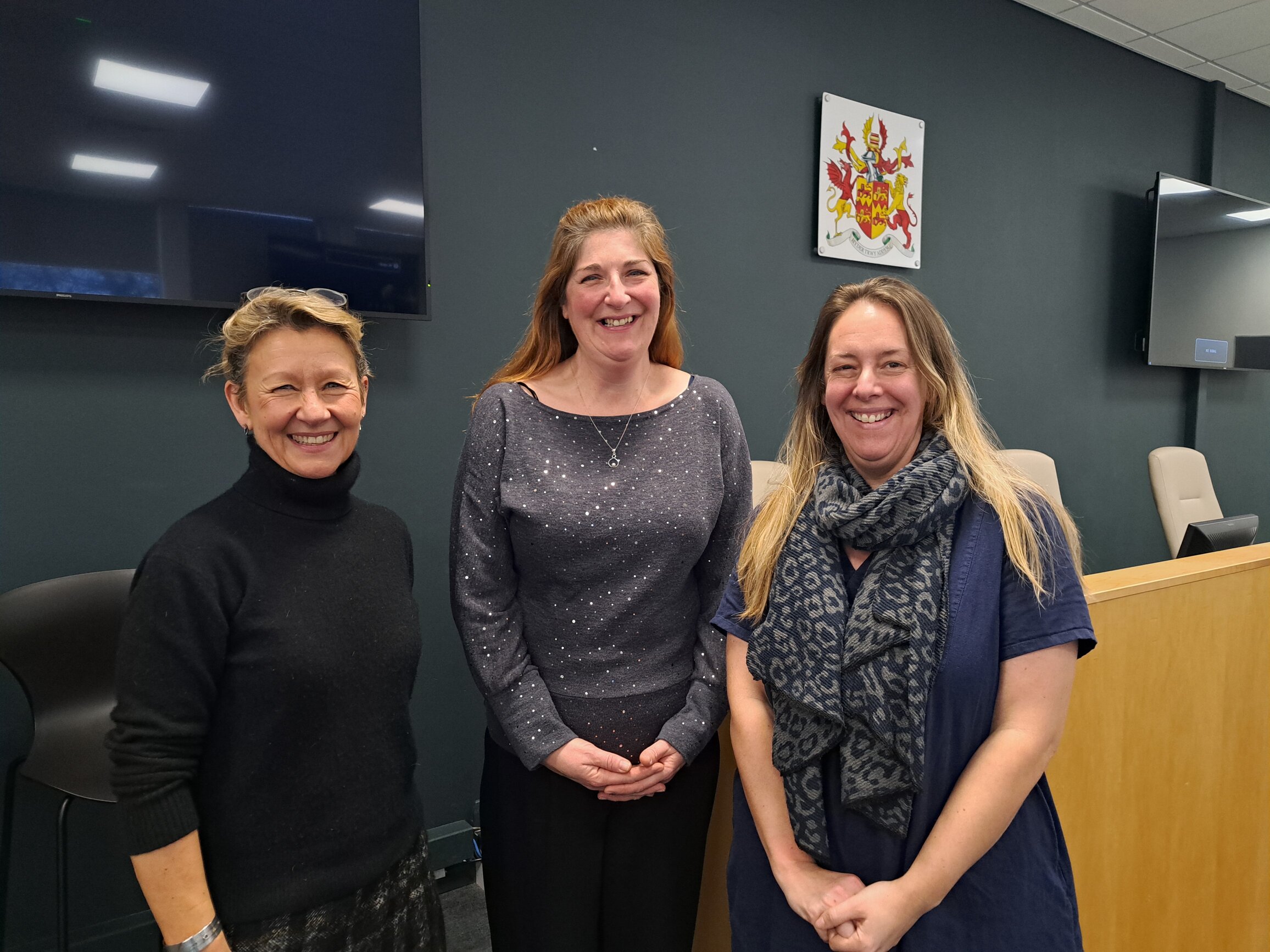Open House for Research, January 2024

January 2024
In January, the next session of Open House for Research took place on campus but was hybrid to allow those working off campus to attend. Hayley Douglas, Senior Lecturer in Youth and Community Work, Nettie Thomas, Lecturer in Mental Health Nursing (St. Asaph), Fern Mitchell, Lecturer/Admin in Psychology, and Dr Nikki Lloyd-Jones, Senior Lecturer in Nursing (Wrexham campus) all presented for six minutes each.
Hayley kicked things off by talking about Asset-Based Community Development (ABCD), which is a form of community development. ABCD is a method that investigates what strengths the community already has, e.g., “what’s strong, not what’s wrong”, and working for what the community needs rather than what professionals think it needs. The research project involves evaluating a Blended Intensive Programme for youth and community workers who undertook an international mobility with students from across Europe, to understand how they have taken their learning from this experience and applied it to their youth work practice. During their week-long experience in Finland, students learnt the ethnographic methods of Biography and Exposure.
Hayley is continuously working with other universities in Germany, Ireland, Sweden, and Finland, using follow-up questionnaires. From across the two cohorts who have participated, findings so far indicate that everyone enjoyed their experiences and learning journeys, which was beneficial to understanding the community and encouraged positive relationships between young people and the community. A barrier identified was that taking these lessons back into organisations was often a struggle.
Next up, Nettie Thomas presented their entry into the Visualising Research Competition last year, which was titled ‘Irlen’s, it’s not just black and white’. Nettie explained that Irlen’s is a visual processing condition whereby words on a page or screen can move around or create shapes and patterns, making it very difficult to read.
The image was a white background with black text on top, but instead of being formatted as a neat paragraph, the text was presented to emulate what a person with Irlen’s might see when trying to read it. The image came joint runner-up, and Nettie outlined their personal journey of discovering Irlen’s and getting the well-deserved help they needed through a diagnosis and specially tinted glasses. Nettie ended with some practical tips for listeners: avoid black text on white backgrounds for your presentations, documents, and other communications, and share original files (e.g., PowerPoints) so these are editable to be comfortable for the readers’ personal preferences.
Our third speaker was Fern Mitchell, who joined us online. Fern discussed their attendance at a recent conference: the Welsh branch of the British Psychological Society, Connected Communities. This was another personal talk, where Fern outlined the physical journey to the conference, which parallelled their journey of getting ‘braver’. Whilst crammed onto a train, Fern was confronted with an informal audience and presented their conference session to the sardine-esque train carriage, which was well received.
At the actual conference, Fern said there was a mix of students in attendance, which helped to block out imposter syndrome, and the atmosphere was not as formal as expected. Fern was also a joint winner of ‘best presentation’ and thanked the research team for the research development award that aided their trip.
Lastly, Nikki talked about ACPs, Advanced Clinical Practitioners, and the experience of introducing research into ACPs’ education. Clinical Practitioners may never have engaged in formal research during their professional career, and embarking on a Masters-level qualification with research as a discreet topic is often not valued as contributing to their developing clinical competence. Nikki explained how the students are often very concerned with enhancing their professional accountability rather than becoming active researchers.
However, Nikki is making great progress in collating their understanding of research, underpinned by research knowledge, working with their experience. This includes helping them to ‘read with purpose’ and building a glossary of understanding. One strategy Nikki used to teach the students research methods was to give them all the same topic to investigate but leave the method of inquiry up to them. This helped them to fully embrace the notion of research, getting the person to articulate their assumptions and develop their own methodology towards investigating an issue from practice. Using the premise of enhancing the practitioners’ accountability, the students form an understanding about developing a robust argument using the principles of a disciplined and ethical research process.
Thanks to all our wonderful speakers - we look forward to the next session of Open House for Research in April.
